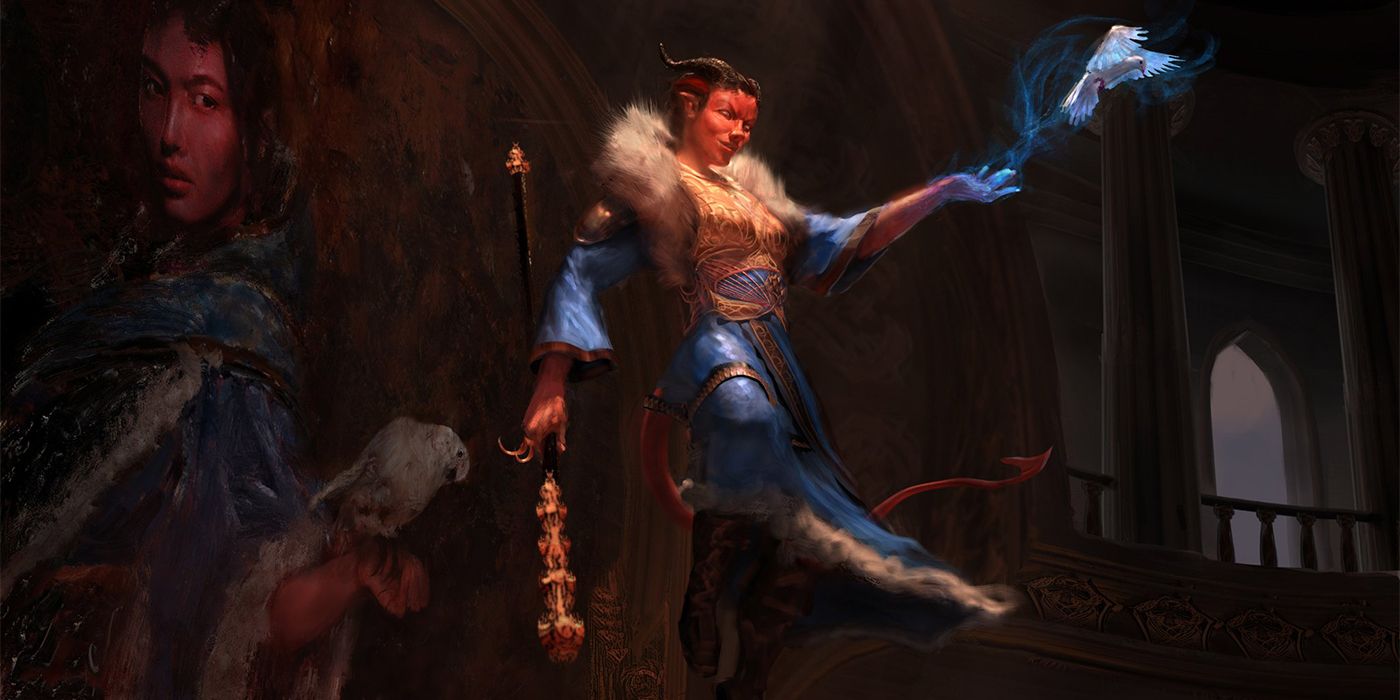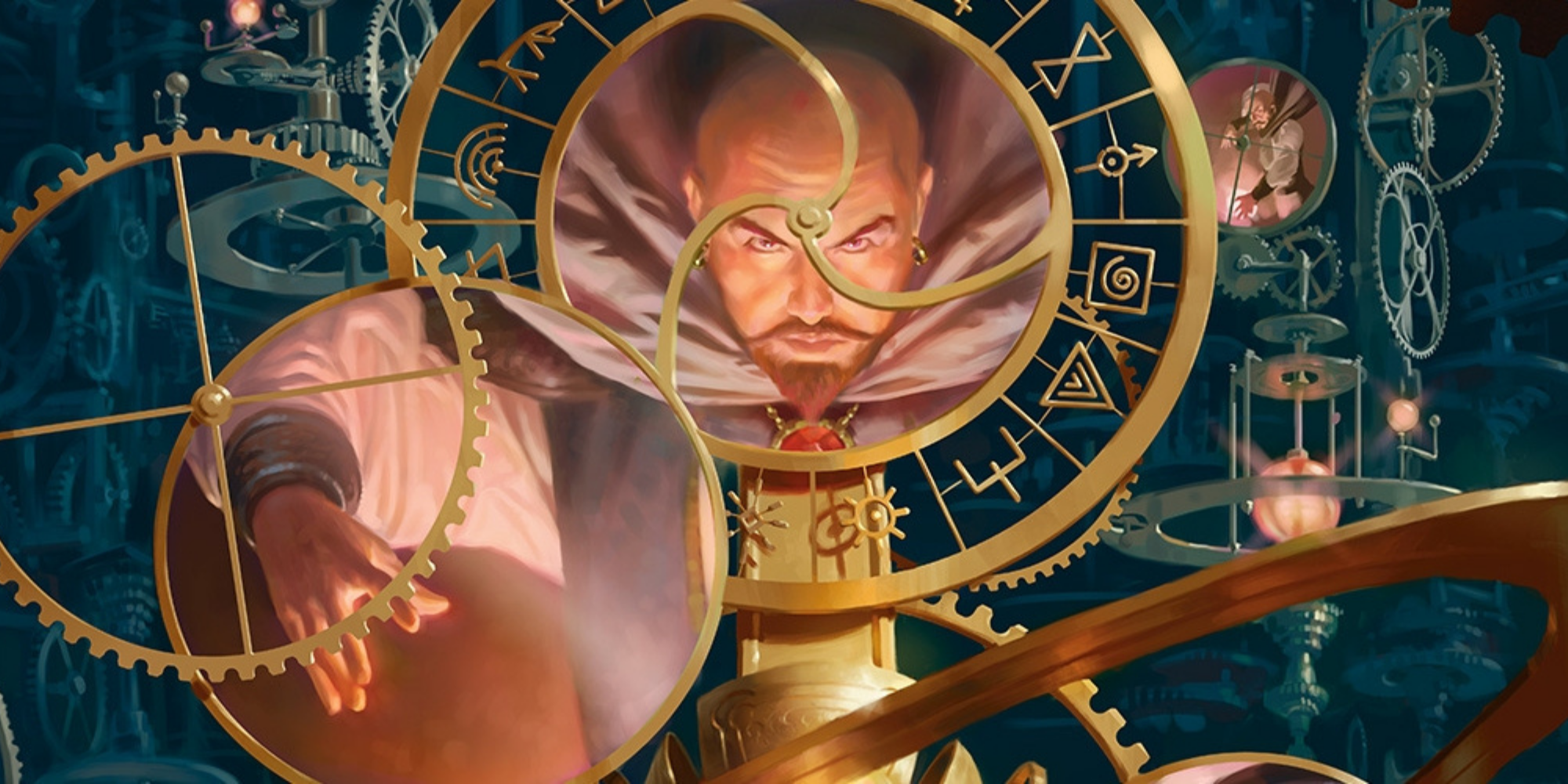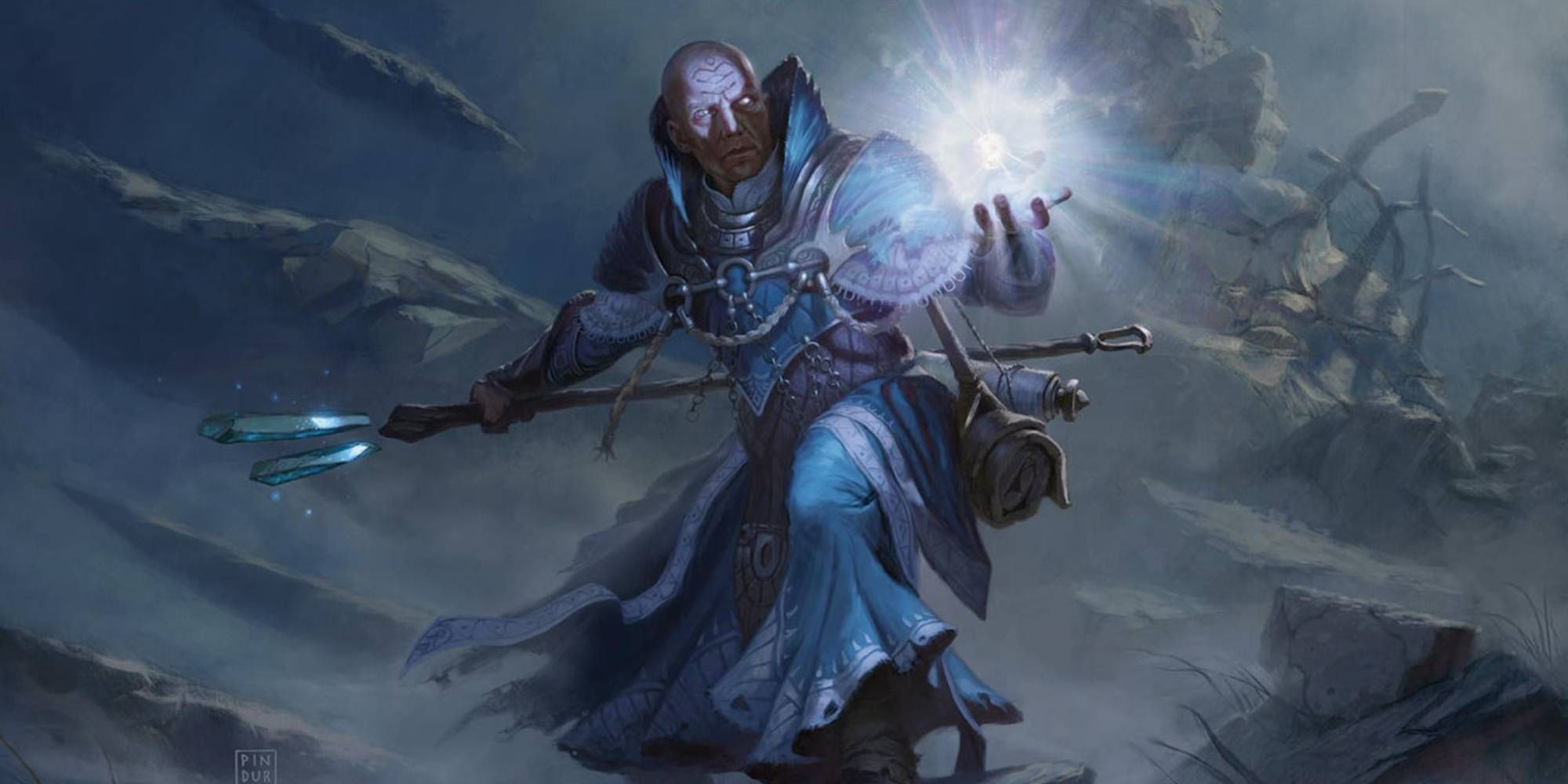In Dungeons & Dragons, players have a myriad of means of customizing their characters and making them distinct. While your choice in your character's class has the largest and most fundamental impact on how that character is played, your choice of subclass can offer significant features and utility — leading to two characters of the very same class offering quite different functionality.
With the launch of Dragonlance: Shadow of the Dragon Queen, players now have access to the robust Lunar Sorcery subclass for Sorcerers. While the three moons of the world of Krynn are an integral part of the Dragonlance setting, the Lunar Sorcery subclass isn't restricted to only being used within that setting, and can offer unique lunar flavor to a Sorcerer in any setting. As such, we're going to explore everything you need to know about playing this highly adaptable spellcasting subclass.
Lunar Embodiment
First and foremost, the most defining feature of Lunar Sorcerers is their ability to magically tap into different phases of the moon, using that phase to impact the majority of their other subclass features. Whenever a Lunar Sorcerer finishes a long rest, they can choose to tap into the Full Moon, New Moon, or Cresent Moon. Immediately at level one, this phase provides access to an additional constantly prepared spell that may be cast once per long rest without requiring the use of a spell slot.
Level one Sorcerers of this subclass gain access to Shield while attuned to the Full Moon, Ray of Sickness while attuned to the New Moon, and Color Spray while attuned to the Cresent Moon, these Sorcerers gain access to yet even more additional spells this way at levels three, five, seven, and nine.
As each Lunar Phase provides access to different types of utility, characters that wield Lunar Sorcery are hyper-adaptable and are capable of significantly overhauling the utility of their build over the course of a long rest. Furthermore, as these Lunar Phases fundamentally impact the utility of your other subclass features, when playing this subclass, you effectively have three distinct subclasses that you can switch between during your rests.
This feature grows significantly more potent when you reach level six, as the Waxing and Waning feature gained at the level allows you to spend one sorcery point as a bonus action to change your Lunar Phase, effectively changing your subclass as a bonus action.
Moon Fire
While far less game-changing and formative than the Lunar Embodiment mechanic, it should be noted that all Lunar Sorcerers have access to Sacred Flame. This is a cantrip that characters of this class can't normally cast. In addition to gaining access to this solid damage option, when Lunar Sorcerers cast this spell its utility is heightened. This is because when it's cast, it can target two creatures instead of just one — as long as those creatures are within five feet of each other. As very few cantrips are capable of dealing with hordes of enemies, targeting more than a single creature at once, Moon Fire is a deceptively powerful asset to have.
Lunar Boons
A subtle yet incredibly powerful feature, Lunar Boons reduces the number of sorcery points you need to spend when using Metamagic options that affect spells of specific schools. The schools affected by this sorcery point cost reduction are determined by the Lunar Phase you're currently attuned to with Lunar Embodiment. Full Moon affects Abjuration and Divination spells, New Moon affects Evocation and Necromancy spells, and Cresent Moon affects Divination and Transmutation spells.
While the potent option of twinning high-damage evocation spells can burn through your sorcery points quite quickly, when attuned to the New Moon, this cost reduction can significantly help reduce the number of sorcery points you'd otherwise spend. While this cost reduction can be quite powerful in some cases, it should be noted that Lunar Sorcerers may only reduce sorcery point costs of Metamagic this way a number of times per long rest equal to their proficiency bonus.
Lunar Empowerment
When a Lunar Sorcerer reaches fourteenth level, they gain access to Lunar Empowerment, a feature that offers completely different utility based upon the Lunar Phase you're currently attuned to. For those attuned to the Full Moon, you gain access to a great out-of-combat bonus action, allowing you to shed light on an area to provide you and your allies with advantage on Investigation and Perception checks, making it a great tool for examining a given location.
Alternatively, those attuned to the New Moon gain advantage in Stealth checks and are attacked at disadvantage when in darkness, while those attuned to the Cresent Moon gain resistance to Radiant and Necrotic damage. As each of these features is so distinct and different from the others, they pair incredibly well with the Waxing and Waning feature that allows you to change your Lunar Phase as a bonus action. This combination of features significantly helps to solidify the adaptive nature of this subclass.
Lunar Phenomenon
The final subclass feature gained by Lunar Sorcerers, Lunar Phenomenon provides access to a special high-impact bonus action determined by your current Lunar Phase. While you may only use one of these features once per long rest — unless you spend five Sorcery Points — you can immediately use one of these features when you activate Waxing and Waning.
Each of these features offers stellar utility that can help you adapt to even the most overwhelming of scenarios. While the Full Moon option available through Lunar Phenomenon provides access to a Blinding AoE that can heal an ally of your choice, the New Moon option can temporarily reduce several foes' movement to zero, and the Cresent Moon option allows you and an ally to instantly teleport up to sixty feet, temporarily providing you and that ally with resistance to all damage.
As this feature is incredibly multifarious, it has a deep well of potential and adaptability while rewarding players who know the ins and outs of their characters. This truly hammers home that while the Lunar Sorcery subclass is among the most flexible subclass options in the entirety of D&D's Fifth Edition, it has more moving parts and elements to keep track of than nearly any other subclass. For this reason, we wouldn't recommend it to less experienced players, but would strongly recommend it to those who already know the ins and outs of D&D and are looking for a build with a high skill ceiling.
Source: Read Full Article





